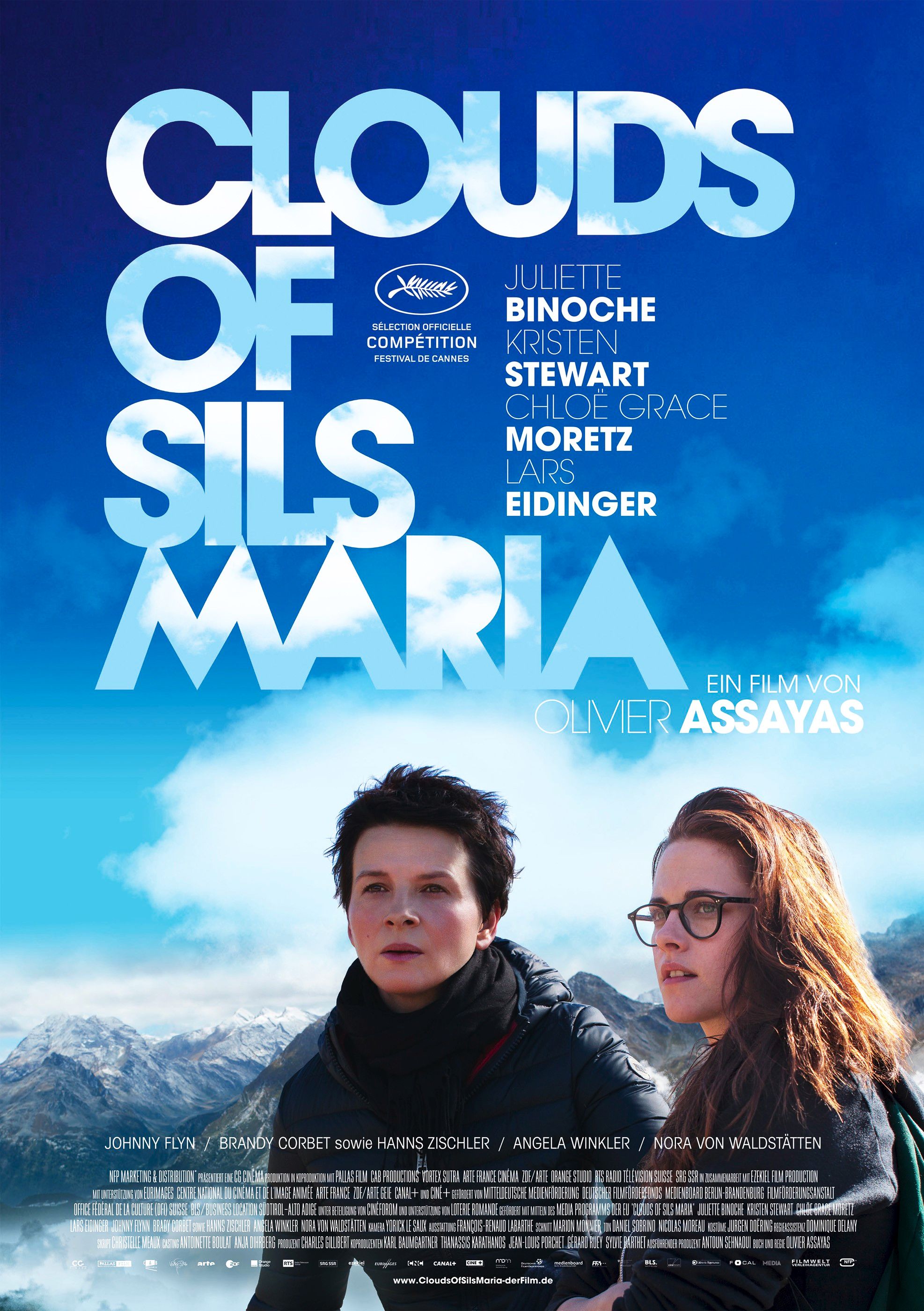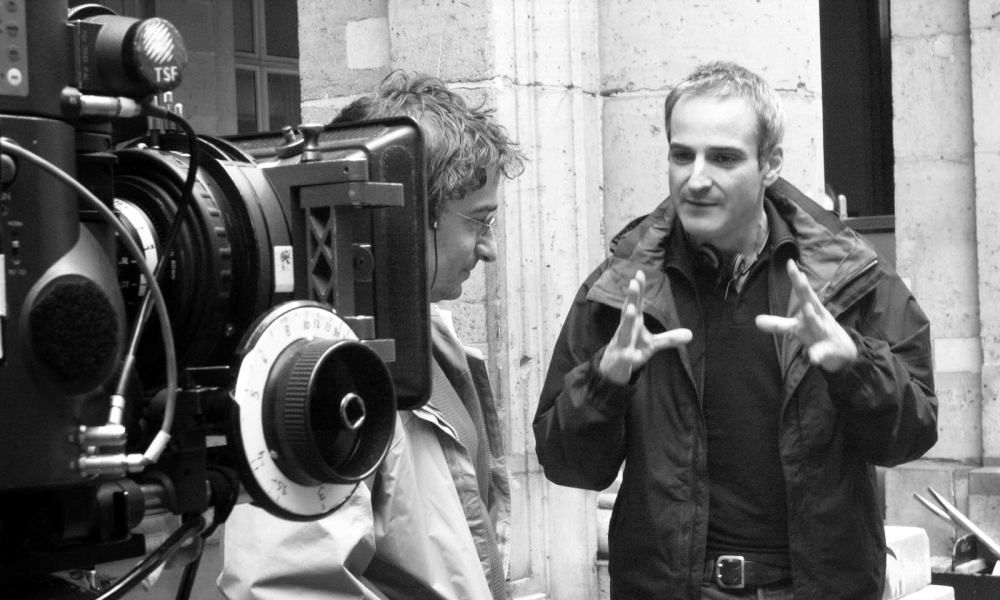"Like the founders of the French New Wave, Olivier Assayas discovered the cinema first as a critic writing for the influential journal Cahiers du cinéma… In a filmmaking career now more than twenty years old, Assayas has consistently conveyed an active imagination and a continued fascination with the dynamics of love, lust and affection, with misfits and criminals, and with cinema's unique ability to make them all real." - Harvard Film Archive, 2008
Olivier Assayas
Key Production Countries: France, Germany, USA
Key Genres: Drama, Romantic Drama, Psychological Drama, Ensemble Film, Comedy, Family Drama, Erotic Thriller, Teen Movie, Thriller, Coming-of-Age, Comedy Drama, Urban Drama
Key Collaborators: François-Renaud Labarthe (Production Designer), Luc Barnier (Editor), Denis Lenoir (Cinematographer), Charles Gillibert (Producer), Yorick Le Saux (Cinematographer), Eric Gautier (Cinematographer), Juliette Binoche (Leading Actress), Georges Benayoun (Producer), Marion Monnier (Editor), Antoine Basler (Leading Character Actor), Nathalie Richard (Leading Character Actress), Alex Descas (Leading Character Actor)
Key Genres: Drama, Romantic Drama, Psychological Drama, Ensemble Film, Comedy, Family Drama, Erotic Thriller, Teen Movie, Thriller, Coming-of-Age, Comedy Drama, Urban Drama
Key Collaborators: François-Renaud Labarthe (Production Designer), Luc Barnier (Editor), Denis Lenoir (Cinematographer), Charles Gillibert (Producer), Yorick Le Saux (Cinematographer), Eric Gautier (Cinematographer), Juliette Binoche (Leading Actress), Georges Benayoun (Producer), Marion Monnier (Editor), Antoine Basler (Leading Character Actor), Nathalie Richard (Leading Character Actress), Alex Descas (Leading Character Actor)
"Assayas benefits from the camerawork of Denis Lenoir, and he is adept at making noir situations seem everyday. He is already a master at overlap, betrayal, and stray coincidence, and he seems to be improving as time passes. Moreover, Irma Vep gave a welcome sign of humor in its awareness of the many poseurs and paranoids one meets in film production." - David Thomson (The New Biographical Dictionary of Film, 2010)
“Olivier Assayas is the author of some fifteen films. After his studies in art and literature, he made short films and collaborated on a number of scripts, in particular for André Téchiné with Rendez-Vous and The Scene of the Crime. He also wrote for the Cahiers du Cinéma (1980-85) and is the author of a book of interviews with Ingmar Bergman. His first film, Disorder, which won an award at the festival in Venice (1986), established him as one of the most significant filmmakers of his generation. His fame was enhanced with Cold Water (1994) and Irma Vep (1996), presented in Cannes.” - Festival de Cannes

Personal Shopper (2016)
“In the '90s Olivier Assayas emerged as one of the key figures in the new generation of French filmmakers. As a former critic for Cahiers du Cinema and a die-hard cinephile, he makes his films both personal and referential to the works of directors that he adores… Though his films enjoyed considerable critical acclaim in France and at international film festivals, his name was virtually unknown in English-speaking countries until the release of his 1996 film Irma Vep, a loving tribute both to Louis Feuillade and Hong Kong cinema. Still faithful to his critical roots, he later directed a documentary on Taiwanese filmmaker Hou Hsiao-hsien.” - Yuri German (Allmovie)
“Capable of tackling everything from slow-burning period pieces to thrilling neo-noirs to anarchic comedies, Parisian Olivier Assayas was a gifted director and screenwriter whose work became synonymous with the film movement known as the New French Extremity. The son of filmmaker Jacques Rémy, Assayas began his career as a critic for influential magazine Cahiers du Cinema, where he wrote lovingly about the European and Asian directors who would later inform his own pictures.” - Turner Classic Movies
“Assayas favors stick-and-move moviemaking, with cinematographer- collaborators Eric Gautier or Denis Lenoir picking out evanescent moments from complex sequence shots, cutting through warrens of activity that would trip up a bulkier crew. The paradigm is the controlled anarchy of the all-night rager in Assayas's fourth film, 1994's Cold Water, the director's recollection of being young and bored in the early '70s, as detail-right as resin crumbs stuck on a Uriah Heep gatefold. The party's coda comes at dawn, as girls squat to pee in a damp field and Nico's donjon-drear voice echoes through the soundtrack—I've been a convert ever since.” - Nick Pinkerton (Village Voice, 2008)
“Since the beginning of his career, Olivier Assayas has displayed a boundless curiosity about the capability of film. The French filmmaker changes genre, style and form frequently, often within the same project, and all with the same enquiring nature. There’s little slack across his entire catalogue. After shadowing his father, writer-director Jacques Rémy as a child, Assayas began his career as a film critic and his understanding of the mechanics of film thoughtfully informs his later work.” - Patrick Sproull (Another Magazine, 2022)
“I make European films and I feel kind of lucky that they are seen at all in North America, because, you know, most of French and European filmmaking are basically not seen. I’ve been pretty lucky because my films have had some kind of minor distribution in the US, but, of course, you know, just only in the main cities. There is a certain level of awareness, but when you make movies, basically, you hope to address to the broader audience, and ultimately try to deal universal issues, and somehow you have this deep belief that you are making something that’s kind of worthwhile in the sense that if it connects with audiences it will just increase their awareness of the world that they live in.” - Olivier Assayas (PopMatters, 2009)
Selected Filmography
{{row.titlelong}}
GF Greatest Films ranking (★ Top 1000 ● Top 2500)
21C 21st Century ranking (☆ Top 1000)
T TSPDT R Jonathan Rosenbaum
21C 21st Century ranking (☆ Top 1000)
T TSPDT R Jonathan Rosenbaum
Olivier Assayas / Favourite Films
Andrei Rublev (1966) Andrei Tarkovsky, L'Argent (1983) Robert Bresson, The Gospel According to St. Matthew (1964) Pier Paolo Pasolini, The Iron Horse (1924) John Ford, The Leopard (1963) Luchino Visconti, La Maison des bois [TV] (1971) Maurice Pialat, Napoléon (1927) Abel Gance, Playtime (1967) Jacques Tati, The Rules of the Game (1939) Jean Renoir, 2001: A Space Odyssey (1968) Stanley Kubrick.
Source: Sight & Sound (2022)
Andrei Rublev (1966) Andrei Tarkovsky, L'Argent (1983) Robert Bresson, The Gospel According to St. Matthew (1964) Pier Paolo Pasolini, The Iron Horse (1924) John Ford, The Leopard (1963) Luchino Visconti, La Maison des bois [TV] (1971) Maurice Pialat, Napoléon (1927) Abel Gance, Playtime (1967) Jacques Tati, The Rules of the Game (1939) Jean Renoir, 2001: A Space Odyssey (1968) Stanley Kubrick.
Source: Sight & Sound (2022)
Olivier Assayas / Fan Club
Glenn Kenny, Filipe Furtado, Kent Jones, Jean-Michel Frodon, Stephanie Zacharek, Xu Jinglei, Nicolas Rapold, Graham Fuller, Todd McCarthy, Tim Robey, Alexander Horwath, Henry K. Miller.
Glenn Kenny, Filipe Furtado, Kent Jones, Jean-Michel Frodon, Stephanie Zacharek, Xu Jinglei, Nicolas Rapold, Graham Fuller, Todd McCarthy, Tim Robey, Alexander Horwath, Henry K. Miller.
"Fan Club"
These film critics/filmmakers have, on multiple occasions, selected this director’s work within film ballots/lists that they have submitted.
These film critics/filmmakers have, on multiple occasions, selected this director’s work within film ballots/lists that they have submitted.


